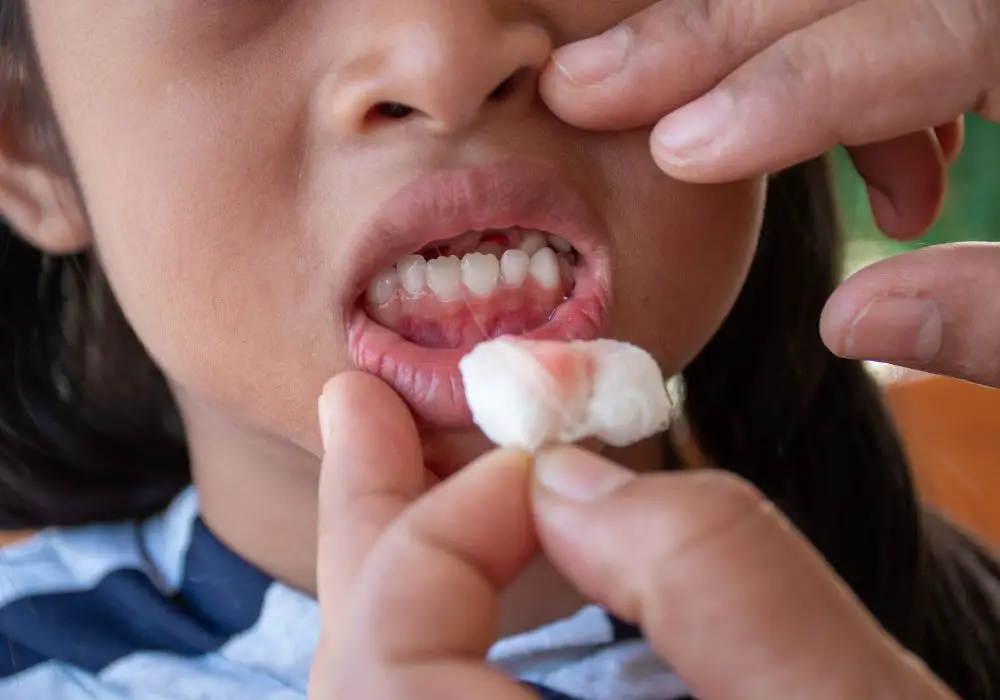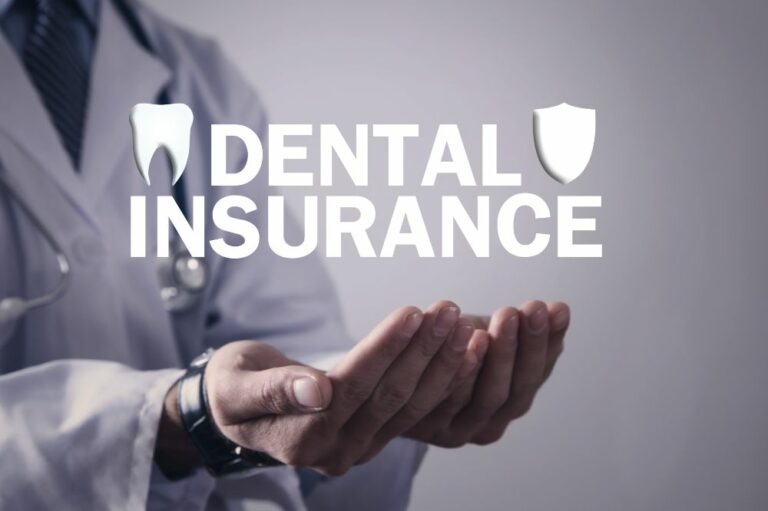Bleeding from the gums can be alarming. You may notice some blood after brushing or flossing, or your gums may bleed spontaneously when eating or drinking. This worrying symptom usually indicates inflammation in the gums. But in some cases, persistent gum bleeding may be a sign of something more serious requiring prompt medical care.
What Causes Bleeding Gums?
There are several potential causes for bleeding gums:
1. Gingivitis
The most common cause of gum bleeding is gingivitis, which is the early stage of gum disease. When plaque accumulates on teeth, it harbors bacteria that secrete toxins irritating the gums. This causes gingivitis, where gums turn red, swollen, and bleed when touched or brushed.
Gingivitis can be reversed with professional cleaning and improved oral hygiene. But left untreated, it may advance to severe gum disease called periodontitis.
2. Periodontitis
With periodontitis, plaque spreads below the gumline and toxins stimulate a chronic inflammatory response. The tissues and bone supporting teeth are broken down, creating pockets that become infected. Eventually this leads to destruction of the periodontal ligament anchoring teeth in place.
In addition to bleeding gums, periodontitis also causes bad breath, receding gums, loose teeth, and abscesses. Prompt treatment is needed to halt progression and save teeth.
3. Vitamin Deficiencies
Nutrient deficiencies impair your body’s natural healing abilities. One of the most common nutritional causes of bleeding gums is vitamin C deficiency.
Vitamin C plays a vital role in producing collagen, which gives structural support to gums and the tiny capillaries that supply them with blood. Without enough vitamin C, these blood vessels can weaken and rupture easily.
Signs of vitamin C deficiency include rough, swollen and discolored gums that bleed with minimal pressure. Other symptoms may include frequent nosebleeds, dry/splitting hair, rough dry skin, and decreased immunity.
Deficiencies in vitamin K and folic acid can also contribute to bleeding gums and impaired wound healing.
4. Blood Disorders
Disorders affecting the blood’s clotting abilities often lead to easy bleeding from the gums. These include:
- Hemophilia – Due to low levels of clotting factors VIII or IX.
- Von Willebrand disease – Defects in von Willebrand factor hamper platelet plug formation.
- Leukemia – Cancer causes abnormal overproduction of white blood cells that crowd out platelets.
- Thrombocytopenia – A low platelet count from conditions like leukemia, anemia, cirrhosis, chemo/radiation.
- Idiopathic thrombocytopenic purpura (ITP) – Antibodies destroy the body’s platelets.
Patients with blood dyscrasias like hemophilia may bleed for over 20 minutes even from minor lacerations. Seeking prompt treatment for the underlying disorder can reduce bleeding risks.
5. Medications

Various medications can provoke gum bleeding as a side effect:
- Anticoagulants – Blood thinners like warfarin, heparin, aspirin, NSAIDs reduce clotting ability and increase bleeding risks.
- Immunosuppressants – Drugs that weaken immunity like chemotherapy, corticosteroids leave gums vulnerable to microbes.
- Phenytoin – An anticonvulsant that causes enlarged gums, which are more prone to bleed.
- Calcium channel blockers – Medications like nifedipine and amlodipine reduce calcium uptake needed for clotting.
Always inform your dentist about any medications you take, including supplements like vitamin E and fish oil, that may prolong bleeding.
6. Hormonal Changes
Fluctuating hormones during puberty, menstruation, pregnancy and menopause can increase gum sensitivity and inflammation – making them more susceptible to bleeding. The gums may also become swollen and red with a smooth shiny surface.
7. Systemic Diseases
Chronic conditions like diabetes and HIV weaken the immune system and raise the risk of gingivitis and accompanying gum bleeding. Cancers like leukemia also compromise immunity and disrupt normal blood cell counts.
Gum bleeding can be the first sign of undiagnosed conditions like diabetes or blood cancers in some patients.
8. Trauma/Injury
Any direct injury to the gums can cause immediate bleeding. Causes include:
- Vigorous flossing or brushing
- Eating hard/crunchy foods
- Improper brushing – sawing back and forth
- Sports injuries, falls or blows to the mouth
- Dental treatments like extractions, implants or biopsies
Most post-trauma bleeding is minor and resolves on its own. Seek help if bleeding persists longer than 20-30 minutes or seems excessive.
9. Stress
Studies show links between stressful life events and increased gum inflammation and bleeding. Stress stimulates the immune system and can also trigger unhealthy habits like smoking, grinding teeth, and poor diet – all of which affect gum health.
10. Unknown Causes
In some cases, no definite cause for gum bleeding can be identified even after thorough dental evaluation and testing. The condition is termed idiopathic gingival hemorrhage. Ensuring good oral hygiene and ruling out other causes is important.
Diagnosing the Cause

If you notice any bleeding from your gums, it’s important to see your dentist promptly. They will:
- Ask about your symptoms, dental history and habits, medications, health issues
- Do a clinical exam checking all your teeth, gums, mouth tissues
- Measure periodontal pockets around each tooth
- Perform microbial testing to check for bacterial infections
- Order blood tests or additional diagnostic testing as needed
- Take dental x-rays to check bone loss and examine below the gumline
This helps determine whether gingivitis, vitamin deficiency, blood disorder or other issues are causing your gums to bleed. An accurate diagnosis is key for appropriate treatment.
Treatments to Stop Bleeding Gums
The treatment approach depends on the cause identified:
1. Gingivitis/Periodontitis Treatment
- Professional deep cleanings above and below the gumline to remove bacterial deposits
- Antimicrobial mouthwashes like chlorhexidine to reduce infection
- Antibiotics to clear advanced infections causing tissue damage
- Gum surgery – flap surgery, grafting, guided tissue regeneration for severe gum recession
- Regular dental cleanings & exams every 3-6 months
Controlling bacterial plaque through daily brushing, flossing, and antiseptic rinses is critical to manage gum inflammation.
2. Nutritional Supplements
If vitamin deficiencies are contributing, dietary changes or vitamin supplements can help strengthen gum tissues.
- Vitamin C – citrus fruits, peppers, broccoli, strawberries
- Vitamin K – green leafy vegetables, liver, soybeans, dairy products
- Folic acid – chickpeas, lentils, spinach, asparagus, broccoli
Take supplements only under medical supervision. See your dentist regularly as well for cleanings.
3. Treat Underlying Conditions
For bleeding gums due to blood disorders or chronic diseases:
- Hemophilia/von Willebrand – Clotting factor replacement therapy
- Leukemia – Chemotherapy, radiation, bone marrow transplant
- ITP – Corticosteroids, intravenous immunoglobulin (IVIG), romiplostim
- Diabetes – Blood glucose control, professional cleanings
This helps manage the related health condition leading to easier bleeding.
4. Medication Change
For drug-related bleeding, your physician may adjust the dosage, switch to alternatives with fewer bleeding risks, or add medications to help control bleeding if absolutely necessary.
Follow medical advice and continue taking prescribed medications unless told to stop. Avoid self-discontinuation.
5. Stress Management
Practicing stress-relieving activities like yoga, meditation, guided imagery can promote gum health. Ensure proper sleep, nutrition and exercise as well. Seek counseling if stress is overwhelming.
6. Home Remedies
Natural home remedies like rinsing with cold water or applying tea bags, clove oil, aloe vera, or guava leaves may temporarily curb bleeding gums. But they do not treat the underlying cause, so dental treatment is still needed.
When to Seek Emergency Care?
Seek emergency help if you have:
- Bleeding that lasts over 2 hours despite pressure
- Large amounts of blood loss from the mouth
- Severe throbbing mouth pain along with gum bleeding
- Bleeding accompanied by symptoms like high fever, chills, or face/neck swelling
These may indicate a serious dental infection, trauma, or blood disorder that requires urgent medical management.
Prevention Tips

Once the cause of bleeding gums is treated, you can take steps to prevent recurrences:
- Gentle brushing and flossing to avoid gum damage
- Using soft/ultrasoft toothbrush bristles
- Replacing toothbrush every 3 months
- Rinsing with antimicrobial mouthwash daily
- Drinking plenty of water to stay hydrated
- Balanced nutrition with fruits and vegetables
- Regular dental cleanings & checkups every 6 months
- Trying to limit stress using relaxation techniques
Good home care combined with professional teeth cleaning helps sustain gum health and stop bleeding problems before they start.
When to See Your Dentist?
Visit your dentist right away if you notice any of these bleeding gum symptoms:
- Bleeding when you brush or floss your teeth
- Red, swollen, sore, or receding gums
- Persistent bad breath or bad taste
- Changes in tooth alignment or how partial dentures fit
- Pus between your teeth and gums
- Increased spacing between teeth
- Shifting or loose teeth
Prompt dental treatment for bleeding gums can prevent significant destruction and tooth loss. Keep up with your regular dental visits for prevention.
Frequently Asked Questions
Here are some common questions about dealing with bleeding gums:
Q: What is the fastest way to stop bleeding gums at home?
A: Using cold water to rinse the mouth and applying pressure to the area with gauze, a tea bag, or a damp washcloth can help stop bleeding in the short-term. But see your dentist to treat the cause.
Q: Can I use baking soda for bleeding gums?
A: Yes, baking soda has mild antibacterial properties that may temporarily help reduce gum inflammation and bleeding when applied topically. Mix it with a bit of water to form a paste and gently rub it on affected gums. Rinse thoroughly afterward.
Q: Is saline rinse good for bleeding gums?
A: Warm salt water rinses will not treat the cause of bleeding gums. But swishing with saline solution can help clear away food debris and keep the area clean, which provides temporary relief from bleeding and discomfort.
Q: How can I tell if my gum bleeding is serious?
A: Gum bleeding is usually not an emergency, but seek prompt medical care if bleeding is excessive or uncontrollable, or accompanied by severe gum/mouth pain, fever, chills or swelling. This may indicate a severe dental infection or blood clotting problem needing urgent care.
Q: Can pregnancy cause bleeding gums?
A: Yes, hormonal changes during pregnancy can increase sensitivity and inflammation in the gums, making them more prone to bleeding. Practicing good oral hygiene and getting professional cleanings helps manage “pregnancy gingivitis”. See your dentist if it persists.
Bottom Line
Bleeding gums are most often caused by the early stages of gum disease called gingivitis. But many other conditions can also lead to bleeding gums, including vitamin deficiencies, blood disorders, chronic diseases, hormonal changes and medications.
See your dentist right away if your gums bleed frequently to determine the underlying cause. With proper treatment tailored to the cause, along with daily oral hygiene, bleeding gums can be successfully managed for healthy teeth and gums.







